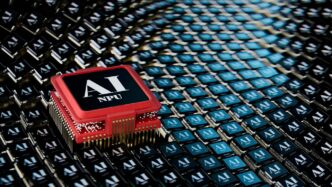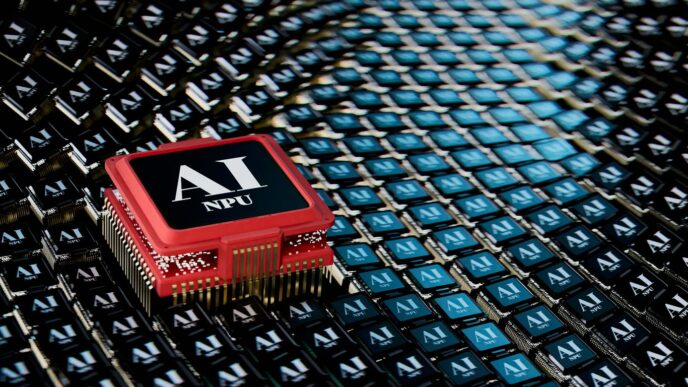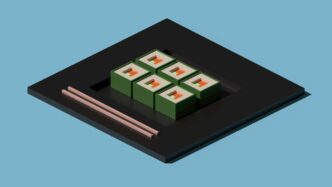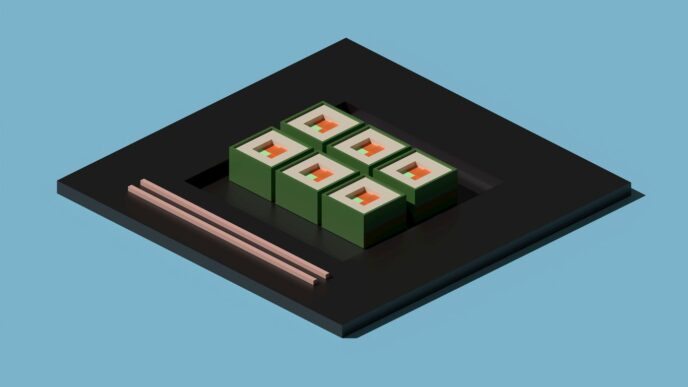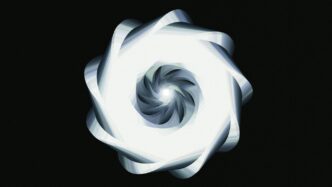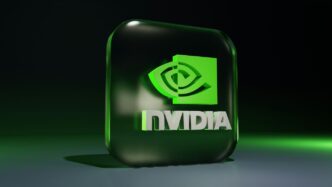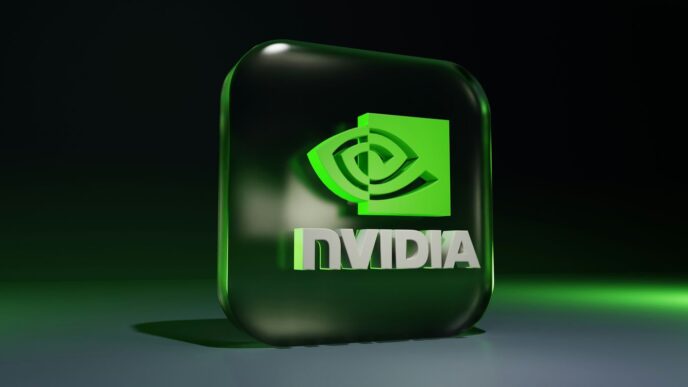You know, when folks talk about quantum computing, names like Feynman or Turing often pop up. But there’s this other guy, David Deutsch, who really got the ball rolling. He’s kind of the unsung hero, the true father of quantum computing, even though he’s a bit of a recluse. His ideas, especially about how quantum mechanics works with multiple universes, really shaped what we now call quantum computing. It’s a wild ride, but his thinking laid down the groundwork for all the amazing stuff happening in the field today.
Key Takeaways
- David Deutsch basically invented the idea of a universal quantum computer, setting the stage for the whole field.
- His work on the Many Worlds Interpretation of quantum mechanics wasn’t just philosophy; it actually showed how quantum computers might function.
- Deutsch challenged old physics ideas, arguing that physics itself is a computer, which changed how we think about computation.
- Even though he’s pretty private, his ideas have had a huge impact on important people in quantum computing and hardware developers.
- Deutsch’s work goes beyond just making faster computers; it digs into deep philosophical questions about reality and how complex systems work.
David Deutsch: The Father of Quantum Computing
It’s hard to overstate David Deutsch’s impact. He’s often called the "father of quantum computing," and for good reason. He really laid the groundwork for the whole field. Deutsch, who has a strong belief in multiple universes, even envisioned a computer to test their existence. His work is foundational, even if he’s something of a recluse. Many colleagues haven’t seen him in person for years!
Pioneering the Universal Quantum Computer
Deutsch’s 1985 paper was a game-changer. He pointed out that Alan Turing’s universal computer, based on classical physics, could only simulate a limited set of computers. Deutsch proposed a quantum version, vastly more powerful. It was a pivotal moment, showing the limitations of classical computation and opening the door to quantum possibilities. This quantum computer could theoretically do things Turing’s never could.
The Genesis of Quantum Computation
Interestingly, Deutsch seems to have conceived the idea of a quantum computer more than once. First, as a way to test the Many Worlds Interpretation. Then, again, through conversations around complexity theory. He didn’t initially call it a "quantum computer," but that’s what it was. It was really his first proposal. It’s like he stumbled upon the idea from different angles, solidifying its importance.
Defining the Field of Quantum Computing
Deutsch’s work wasn’t just about building a better computer. It was about redefining what computation is. He challenged the classical assumptions that had been in place since Turing. He showed that quantum mechanics offered a fundamentally different way to process information. This shift in perspective is what truly defines the field of quantum computing, and it all goes back to Deutsch’s insights. He really set the stage for everything that followed.
The Many Worlds Interpretation and Quantum Computing

Quantum Computers as Evidence for Many Worlds
Okay, so the Many-Worlds Interpretation (MWI) is a wild idea, right? It basically says that every quantum decision splits the universe into multiple universes, each representing a different outcome. It’s been around for a while, but it’s really gained traction in discussions about quantum computing. Some people think quantum computers actually prove the Many-Worlds Interpretation is real. Deutsch himself seems to be a big believer. The idea is that a quantum computer explores all these parallel universes simultaneously to find the answer to a problem. It’s a mind-bending concept, but it’s also super cool to think about.
Bridging Philosophy and Physics
This is where things get interesting. The Many-Worlds Interpretation isn’t just some abstract philosophical idea; it has real implications for how we understand physics. It challenges our classical assumptions about reality and forces us to think about the nature of computation in a whole new way. It’s not just about building faster computers; it’s about understanding the very fabric of reality. Deutsch’s work really brings these two fields together, showing how philosophical ideas can actually drive scientific progress. It’s like, does the existence of Quantum AI support the Many-Worlds Interpretation? It’s a question worth pondering.
The Oxford Flu and Parallel Universes
I remember reading something about an "Oxford flu" thought experiment. The idea is that if you could somehow interact with your parallel selves, you might catch a disease that doesn’t even exist in your universe. It’s a bit out there, but it highlights the potential strangeness of the Many-Worlds Interpretation. It also shows how Deutsch’s ideas, especially around Oxford, have influenced thinking about quantum computing. It’s not just about the math and the algorithms; it’s about the fundamental nature of reality. It’s like, if quantum computers are really tapping into parallel universes, what other possibilities are out there? Here are some things to consider:
- The nature of reality
- The limits of computation
- The potential for new technologies
Deutsch’s Unique Approach to Physics
Challenging Classical Physics Assumptions
Deutsch didn’t just tweak existing theories; he questioned the very foundations upon which they were built. He looked at the limitations of classical physics and saw opportunities to redefine what was possible. It’s like everyone was using a horse and buggy, and he was thinking about rockets. He recognized that classical physics, while useful in many situations, was ultimately an approximation of reality, not the full picture. This perspective allowed him to envision computational possibilities that were simply inconceivable within a classical framework.
The Fundamental Computer is Physics Itself
Deutsch took a radical stance: physics itself is computation. He realized that computational complexity wasn’t just an abstract concept, but a property of the physical world. It’s like saying the universe is one giant computer constantly processing information. This idea, as he himself stated, was inspired by Charlie Bennett. The implication is profound: to truly understand computation, you need to understand the underlying physics. This is why quantum mechanics plays such a big role in his theories.
Rewriting Turing’s Universal Computer
Alan Turing’s concept of a universal computer was groundbreaking, but Deutsch argued it was limited by its reliance on classical physics. Turing’s machine, in theory, could only simulate a subset of possible computers. Deutsch set out to rewrite Turing’s work using quantum physics, creating a quantum universal computer with capabilities that Turing’s machine couldn’t match. It’s like upgrading from a regular light bulb to a super-powered laser. The differences, according to Deutsch, are significant. He essentially took the idea of a universal computer and gave it a quantum boost, opening up new horizons for quantum computation.
Impact and Recognition in the Quantum Field
Influencing Key Figures in Quantum Computing
David Deutsch’s ideas didn’t just stay in textbooks; they actively shaped the thinking of many prominent figures in the quantum computing world. It’s like he planted the seeds, and others cultivated the garden. You can see his influence in the way researchers approach problems and design algorithms. His theoretical framework provided a solid foundation for practical advancements. It’s not always obvious, but if you dig deep enough, you’ll find Deutsch’s fingerprints all over the place. His work is a cornerstone of quantum computing.
Acknowledged by Hardware Developers
It’s one thing to have theoretical influence, but it’s another to see your ideas impact actual hardware development. Deutsch’s concepts have pushed engineers to think differently about how computers can be built. They’re trying to create machines that can actually realize the potential he envisioned. It’s a tough challenge, but the progress is undeniable. Hardware developers are actively working to build systems that can leverage quantum mechanics in the way Deutsch described. It’s a testament to the power of his ideas that they’re driving innovation in the physical world.
A Cloistered Genius’s Foundational Work
Deutsch isn’t always the first name that comes to mind when people talk about quantum computing. He’s more of a behind-the-scenes guy, a cloistered genius whose foundational work underpins much of what’s happening today. Think of him as the architect who designed the blueprint, while others are building the house. His contributions are fundamental, even if they’re not always widely recognized. He laid the groundwork for quantum algorithms and quantum error correction, which are essential for making quantum computers practical. It’s time he got more credit for his pioneering work.
The Philosophical Underpinnings of Quantum Computing
Quantum computing isn’t just about faster calculations; it’s forcing us to rethink some pretty deep stuff about reality itself. It’s like, we thought we had a handle on how the universe works, and then quantum mechanics shows up and throws a wrench in everything. Now, with quantum computers becoming a reality, these philosophical questions are getting even more urgent.
Quantum Mechanics and Philosophical Depth
Quantum mechanics has always been weird. Superposition, entanglement… it all sounds like science fiction. But it’s real, and it’s the foundation of quantum computing. The fact that a qubit can be both 0 and 1 at the same time challenges our classical intuitions about how things should be. It’s not just a technological hurdle; it’s a philosophical puzzle. How do we reconcile this with our everyday experience of a world that seems pretty definite and predictable? This is where quantum information theory comes into play, offering new ways to think about these concepts.
Beyond Calculation: The Deeper Questions
It’s easy to get caught up in the potential of quantum computers to break encryption or design new materials. But the really interesting stuff is what they tell us about the nature of computation itself. Is the universe fundamentally a computer? If so, what kind of computer is it? And what does that mean for our understanding of consciousness, free will, and all those other big questions? These aren’t just abstract musings; they’re directly related to how we design and interpret quantum algorithms.
Consider this:
- What does it mean for a computation to be "quantum"?
- Does quantum computation reveal something new about the limits of computation?
- How does quantum mechanics influence our understanding of complexity?
The Role of Complexity Theory
Complexity theory helps us understand how hard certain problems are to solve. Classical computers struggle with some problems that seem easy for quantum computers, and vice versa. This difference isn’t just about speed; it’s about the fundamental structure of the problem itself. If a quantum computer can solve a problem that’s impossible for a classical computer, does that mean the universe is fundamentally more complex than we thought? Or does it just mean we haven’t found the right classical algorithm yet? These are the kinds of questions that keep philosophers and computer scientists up at night. It’s a fascinating intersection of ideas, and it’s only going to get more interesting as quantum computers become more powerful. The early theoretical explorations Richard Feynman and David Deutsch are key to understanding this.
David Deutsch’s Enduring Legacy
Shaping the Future of Computation
Deutsch’s work isn’t just some abstract theory; it’s actively shaping how we think about and build computers. It’s easy to get caught up in the technical details, but the core idea – that the universe itself is a giant computer – has profound implications. This perspective is driving innovation in quantum algorithms and hardware design. It’s not just about making faster machines; it’s about fundamentally changing what computation is.
Inspiring New Generations of Scientists
Deutsch’s influence extends beyond the immediate circle of quantum computing researchers. He’s inspired countless students and scientists to think differently about physics and computation. His willingness to challenge conventional wisdom and explore unconventional ideas has opened up new avenues of inquiry. It’s like he gave people permission to be curious and to question everything. Here are some ways he has inspired new generations:
- Encouraging a deeper understanding of quantum mechanics.
- Promoting interdisciplinary thinking between physics, computer science, and philosophy.
- Fostering a culture of intellectual curiosity and risk-taking.
The Unseen Architect of Quantum Progress
While many focus on the hardware and practical applications of quantum computers, Deutsch’s theoretical framework remains the foundation upon which the entire field is built. He’s the unseen architect, the guy who laid the groundwork for everything that’s happening now. Even if his name isn’t always on the headlines, his ideas are woven into the fabric of quantum computing. It’s like he planted a seed, and now we’re seeing the tree grow. The impact of his quantum progress will only become more apparent as quantum computers become more powerful and widespread.
So, What Does This All Mean?
So, when we talk about quantum computing, it’s easy to get lost in all the technical stuff. But it’s good to remember the people who started it all. David Deutsch, with his big ideas about many worlds and how computers work, really set things in motion. He saw a future for computing that others didn’t, and even if some of his ideas seemed a bit out there at first, they pushed the whole field forward. It just goes to show that sometimes, the biggest breakthroughs come from thinking a little differently.
Frequently Asked Questions
Why is David Deutsch considered the “father of quantum computing”?
David Deutsch is often called the “father of quantum computing” because he was the first to imagine and describe what a universal quantum computer would be like in 1985. He laid down the basic ideas for this new kind of computing.
What was David Deutsch’s main contribution to quantum computing?
Deutsch’s big idea was to create a computer that uses the rules of quantum physics, not just regular physics. This new kind of computer could do things that even the most powerful regular computers can’t, like solving super hard problems or breaking tough codes.
How does the Many Worlds Interpretation connect to quantum computing?
The Many Worlds Interpretation (MWI) is a theory that says every time a quantum event happens, the universe splits into different versions, each showing a different possible outcome. Deutsch thought that a quantum computer could actually prove this idea by showing how these different ‘worlds’ work together to solve problems.
What did Deutsch mean when he said “The Fundamental Computer is Physics Itself”?
Deutsch believed that physics itself is like a giant computer. He thought that if we truly understand the rules of the universe, we could build computers that are much more powerful than anything we have now, because they would follow those fundamental rules.
How did Deutsch improve upon Alan Turing’s idea of a universal computer?
While Alan Turing came up with the idea of a universal computer, Deutsch realized that Turing’s idea was based on old physics. Deutsch updated Turing’s concept by using quantum physics, showing that a quantum universal computer could do much more than Turing’s original idea allowed.
What is David Deutsch’s lasting impact on the field of quantum computing?
Deutsch’s work has had a huge impact. It has inspired many scientists and engineers to build quantum computers. His ideas are the foundation for much of the research and development happening in quantum technology today, even though he prefers to work quietly.



